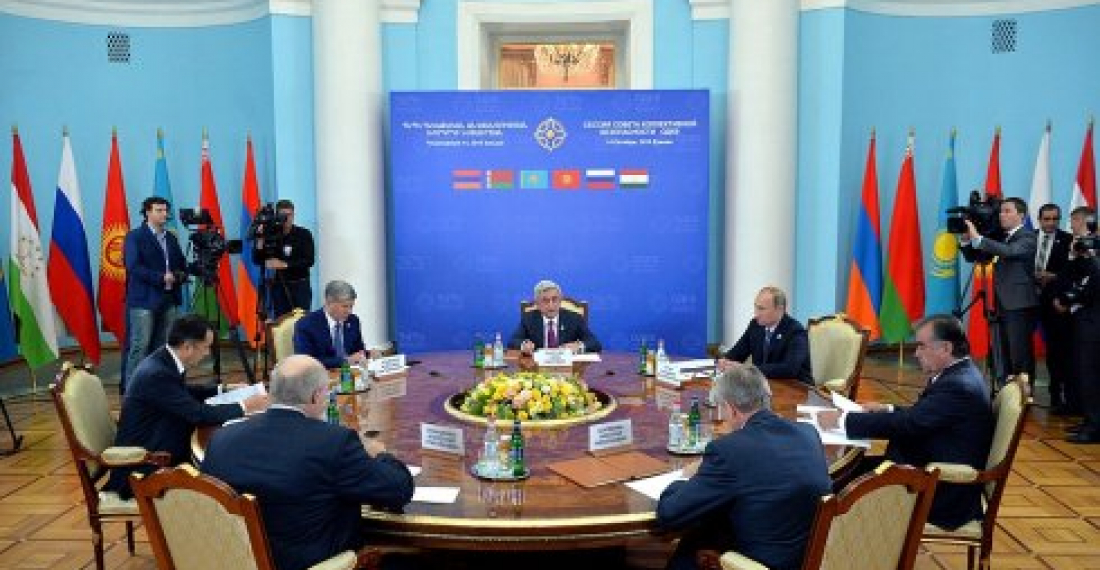This is a commentary prepared by the political editor of commonspace.eu
That Russia's President Vladimir Putin is nostalgic about the USSR is well known. He is on record saying that dismantling the USSR was a mistake. The extent to which the Russian president does not accept the Soviet Union's demise was again evident when he spoke to journalists in Goa over the weekend, on the margins of the BRICS summit.
Putin travelled to Goa from Yerevan, where on Friday he attended a summit of the Collective Security Treaty Organisation (CSTO), a Russia led defence organisation that also includes Armenia, Belarus, Kazakhstan, Kyrgizstan and Tadjikistan. The other nine former Soviet republics refused to join. Some tensions were detected during this meeting (read more)
Putin said that the CSTO was created to deal with "external threats" but he said it also has to somehow react to what is happening "close to us", adding, "but we must strive to ensure that all the problems that we have inherited from the past, be resolved by peaceful means and on the basis of compromise. It is a compromise both sides should be ready to". Putin said that the CSTO summit in Yerevan "discussed the Karabakh problem in this context".
Putin said that in Yerevan there was also discussions on "certain tensions" between former Soviet republics. Putin added, "it does not even matter for us if a former Soviet republic country is a member of the CSTO or not. What is important is that we have with all these countries a special and historical relationship. And this relationship is much closer and deeper than the relationship between NATO countries. We cannot ignore it".
You can listen to President Putin speaking to journalists in Goa in this video file on the Kremlin website here
It is commendable that president Putin advocates peaceful solutions based on compromise in the context of the Karabakh conflict, and other problems in the post-Soviet space. However his implied references to Russia's role leave many questions unanswered
Since 1991, be it under president Yeltsin, or president Putin Russian officials have consistently refused to see the former Soviet space beyond Russia as foreign territory. Defining it has never been precise, and many nuances have been used in the terminology, but on one thing there has been consistency and clarity - external meant beyond the former USSR borders, within those borders the relationship was opaque - "special and historical", as President Putin put it in Goa, or the "near abroad" as defined in geo-strategic terms.
Many countries have "special and historical" relationships with each other, and as long as all sides are happy to use these relationships as the foundation for future relationships this is to be admired. Russia has however used this "special and historical" relationship to somehow question the sovereignty, independence and territorial integrity of post-Soviet states, and a justification for meddling in the affairs of these states. Ukraine and Georgia are only two examples.
Russia refuses to accept that it is these hegemonic tendencies that are the biggest source of instability in the regions around it.
The Post-Soviet Republics have recently been celebrating their 25th anniversary of independence. Elites, even in the most pro-Russian ones, now enjoy the trappings of statehood and are in no mood to hand it back to Moscow. It is time Russia recognises that its best interest, and the interest of its former possessions, is best served by accepting the reality and building new relations based on equality and mutual respect.
Source: This commentary was prepared by the editorial team of commonspace.eu
photo: The meeting of the Heads of State of the CSTO in Yerevan on 14 Ocotober 2016. (picture courtesy of the press service of the president of Armenia)






